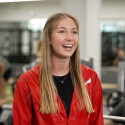Teach-in on Islam in the world set for Sept. 19
The religious ideas of Islam and its global influence will be explored at a teach-in conducted by members of the UW–Madison faculty and the Madison Muslim community on Wednesday, Sept. 19, 4-6 p.m. in 3650 Mosse Humanities Building, 455 N. Park St.
The free public event will focus on what constitutes Islam’s fundamental beliefs, how Islam is practiced, and how that practice affects social structures and political policy throughout the world.
Since Islam is a world religion and not just centered on the Middle East, its historic home, faculty members will speak about Islam in a number of locales. Local Muslims will speak about Islam as a lived faith and what it means to be Muslim.
“The teach-in’s purpose is to dispel myths and misapprehensions that many Americans have about what Muslims truly believe,” says teach-in coordinator and moderator Charles Cohen, professor of history and director of the Religious Studies Program.
“This is especially important since national concern about Islam’s basic stance toward war and peace, the sanctity of human life, mercy toward enemies, and God’s justice has escalated since the terrorist attacks on New York and Washington,” Cohen adds.
Panel members will give short talks about a particular facet of Islam. The panel will then answer questions from the audience.
Panel members include: Moneera Al-Ghadeer, assistant professor of African languages and literature; Ahmed Ali, president of the Islamic Community of Madison Area; Michael Chamberlain, associate professor of history and religious studies, and director of the Middle Eastern Studies Program; Dustin Cowell, professor of African languages and literature; Joseph Elder, professor of sociology, religious studies, and languages and cultures of Asia, and director of the Center for South Asia; Kenneth George, a professor of anthropology and affiliate of the Center for Southeast Asian Studies; Charles Hirschkind, assistant professor of anthropology and religious studies; Mary Layoun, professor of comparative literature and Middle Eastern studies; David Morgan, professor of history and religious studies; Uli Schamiloglu, professor of South Asian and Middle Eastern studies; and Mamoon Syed, president of the Muslim Student Association.
Tags: learning



